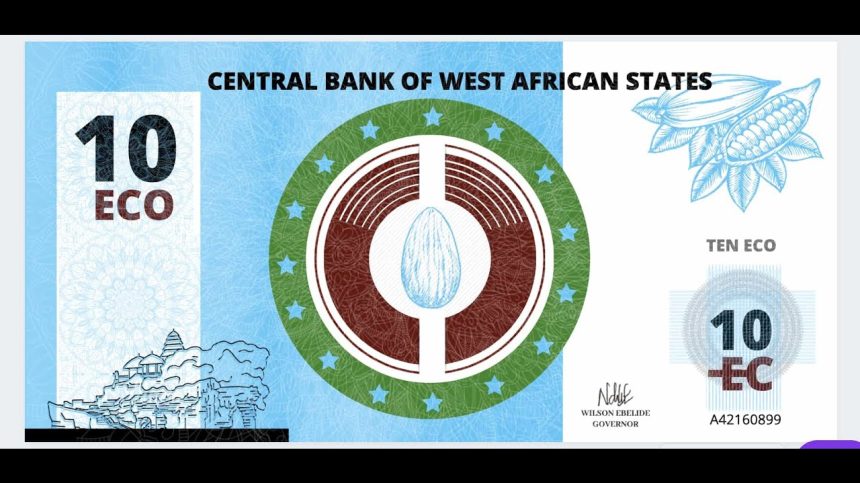The much-anticipated launch of the West African currency, the “ECO,” has been marred by delays, sparking concerns and questions regarding the future of economic integration in the region. Originally slated for introduction in 2020, the ECO’s delayed arrival has left stakeholders pondering the reasons behind the setback and its implications for West Africa’s monetary union.
Background:
The idea of a common currency for West Africa dates back decades, with the aim of fostering economic integration and facilitating trade among member states of the Economic Community of West African States (ECOWAS). In December 2019, ECOWAS leaders announced plans to adopt the ECO, signaling a significant step toward regional economic cooperation.
Reasons for Delay:
Despite initial enthusiasm, the launch of the ECO has encountered obstacles, leading to its prolonged postponement. Several factors contribute to the delay:
- Technical Challenges: Implementing a common currency entails intricate technical processes, including aligning monetary policies, harmonizing fiscal frameworks, and establishing exchange rate mechanisms. These complexities require meticulous planning and coordination among member states, contributing to delays in the ECO’s launch.
- Economic Divergence: The economic disparities among ECOWAS member states pose challenges to currency convergence. Disparities in inflation rates, fiscal discipline, and economic structures necessitate adjustments to ensure the stability and viability of the ECO. Bridging these gaps demands time and concerted efforts from all stakeholders.
- Political Considerations: Political dynamics within member states influence the pace and trajectory of regional integration initiatives. Disagreements over governance structures, sovereignty concerns, and differing national priorities can impede progress toward adopting a common currency. Addressing these political hurdles is crucial to advancing the ECO agenda.
- External Pressures: External factors, such as global economic trends, international financial regulations, and geopolitical considerations, also impact the ECO’s launch. Economic uncertainties, currency fluctuations, and external debt burdens in some member states may necessitate caution in implementing a new currency regime.
Implications and Challenges:
The prolonged delay in launching the ECO raises various implications and challenges for West Africa:
- Economic Integration: Delays in introducing the ECO hinder efforts to deepen economic integration and promote intra-regional trade. A common currency facilitates commerce by eliminating exchange rate uncertainties and reducing transaction costs, enhancing the competitiveness of West African economies on the global stage.
- Investor Confidence: Uncertainty surrounding the ECO’s launch may dampen investor confidence and undermine prospects for foreign direct investment in the region. Investors seek stability and predictability in monetary policies and exchange rate regimes, factors that could be jeopardized by prolonged delays in implementing the ECO.
- Regional Stability: Economic disparities and divergent interests among ECOWAS member states may strain regional cohesion and stability. Discontent over perceived inequities in currency arrangements and distributional effects of monetary policies could exacerbate tensions and hinder progress toward broader regional objectives.
- Policy Coordination: Effective coordination of monetary and fiscal policies is essential for the success of a common currency. Delays in launching the ECO prolong the challenges of policy harmonization and coordination, necessitating continued efforts to align national economic strategies with regional objectives.
The delayed launch of the ECO underscores the complexities and challenges inherent in regional integration efforts in West Africa. While the road to adopting a common currency may be fraught with obstacles, concerted efforts by ECOWAS member states and stakeholders are essential to overcome barriers and realize the potential benefits of economic cooperation and integration in the region. As discussions continue and efforts to address underlying issues progress, the future of the ECO remains a focal point of interest and importance for West Africa’s economic trajectory.







